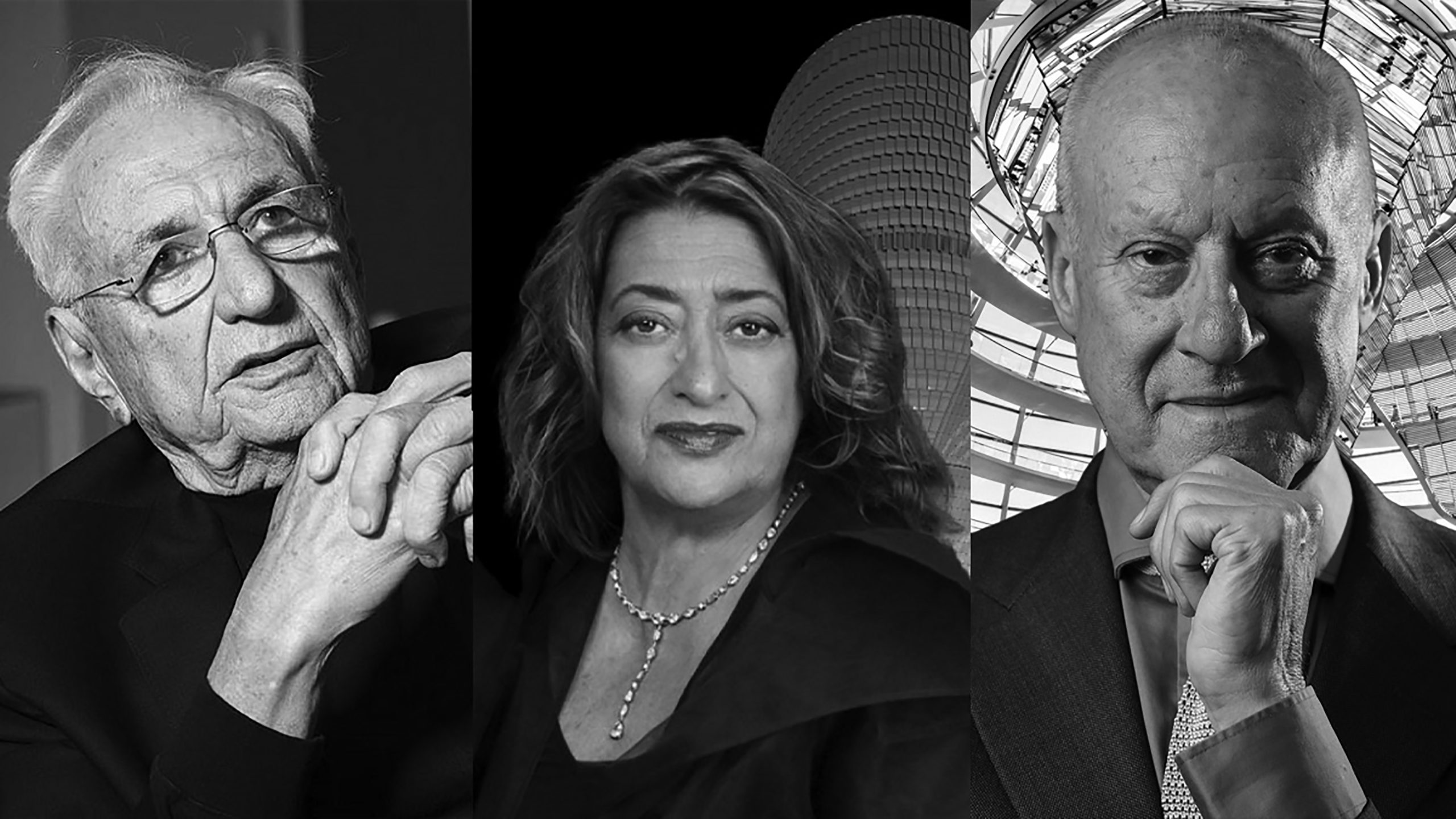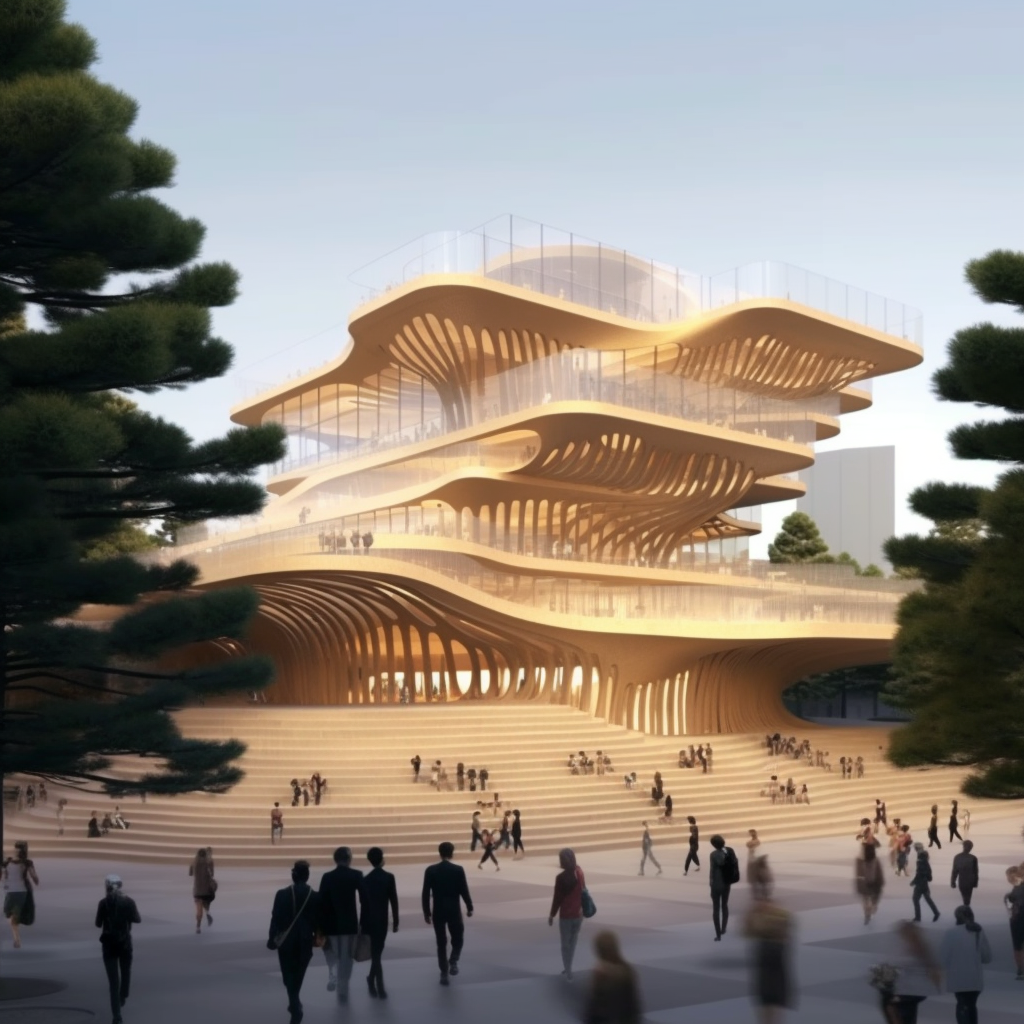The Financial Success of the World’s Wealthiest Architects
[/et_pb_text][et_pb_text _builder_version=”4.23″ text_font=”Montserrat||||||||” text_font_size=”20px” text_line_height=”1.8em” header_2_font_size=”30px” min_height=”88px” text_font_size_tablet=”15px” text_font_size_phone=”14px” text_font_size_last_edited=”on|desktop” global_colors_info=”{}”]Architecture, an exquisite amalgamation of creative vision and pragmatic design, transcends its functional role in shaping skylines and urban landscapes—it stands as a beacon for immense financial achievement. Within this vibrant domain, a select cohort of visionary architects not only crafts breathtaking structures but also commands significant wealth. In this comprehensive exploration, we embark on a journey to unravel the intricate tapestry of financial success woven by some of the world’s most celebrated architects. Our quest is to illuminate not only their amassed net worth but also the nuanced financial terrain that defines and delineates their industry.
[/et_pb_text][et_pb_image src=”https://old-site.kamellokman.com/wp-content/uploads/2023/11/Norman-Foster-scaled.jpg” alt=”Norman Foster” title_text=”Norman Foster” _builder_version=”4.23″ _module_preset=”default” global_colors_info=”{}”][/et_pb_image][et_pb_text _builder_version=”4.16″ text_font=”Montserrat||||||||” text_font_size=”16px” text_line_height=”1.8em” text_font_size_tablet=”15px” text_font_size_phone=”14px” text_font_size_last_edited=”on|desktop” global_colors_info=”{}”]At the forefront of this domain stands architecture luminary Norman Foster, an architect whose imprint on the global architectural canvas is as much a testament to his artistry as it is to his financial prowess. As the founder of Foster + Partners Ltd., his portfolio spans a multitude of iconic edifices, from the iconic Gherkin adorning London’s skyline to the sleek Hearst Tower gracing New York City, contributing significantly to his monumental net worth of $240 million.
[/et_pb_text][et_pb_image src=”https://old-site.kamellokman.com/wp-content/uploads/2023/11/Frank-Gehry.jpg” alt=”Frank Gehry” title_text=”Frank Gehry” _builder_version=”4.23″ _module_preset=”default” global_colors_info=”{}”][/et_pb_image][et_pb_text _builder_version=”4.16″ text_font=”Montserrat||||||||” text_font_size=”16px” text_line_height=”1.8em” custom_padding=”5px|||||” text_font_size_tablet=”15px” text_font_size_phone=”14px” text_font_size_last_edited=”on|desktop” global_colors_info=”{}”]Right alongside Foster, Frank Gehry emerges as an emblem of architectural ingenuity and financial ascendancy. His reputation for avant-garde designs resonates through globally renowned landmarks like the Guggenheim Museum in Bilbao, Spain, and the captivating Walt Disney Concert Hall in Los Angeles, bolstering his formidable net worth of $100 million.
[/et_pb_text][et_pb_image src=”https://old-site.kamellokman.com/wp-content/uploads/2023/11/the-Worlds-Wealthiest-Architects.jpeg” alt=”Zaha Hadid” title_text=”the World’s Wealthiest Architects” _builder_version=”4.23″ _module_preset=”default” hover_enabled=”0″ global_colors_info=”{}” sticky_enabled=”0″][/et_pb_image][et_pb_text _builder_version=”4.23″ text_font=”Montserrat||||||||” text_font_size=”16px” text_line_height=”1.8em” text_font_size_tablet=”15px” text_font_size_phone=”14px” text_font_size_last_edited=”on|desktop” global_colors_info=”{}”]Despite her untimely departure in 2016, the indelible legacy of Zaha Hadid continues to reverberate across architectural realms, underscoring not only her innovative designs but also her amassed net worth of $89 million. Her architectural brainchild, Zaha Hadid Architects, continues to breathe life into visionary projects, from the fluid curves of the London Aquatics Centre to the geometric marvel of the Heydar Aliyev Center in Azerbaijan.
[/et_pb_text][et_pb_image src=”https://old-site.kamellokman.com/wp-content/uploads/2023/11/Le-Corbusier.jpeg” alt=”Le_Corbusier” title_text=”Le Corbusier” _builder_version=”4.23″ _module_preset=”default” global_colors_info=”{}”][/et_pb_image][et_pb_text _builder_version=”4.16″ text_font=”Montserrat||||||||” text_font_size=”16px” text_line_height=”1.8em” text_font_size_tablet=”15px” text_font_size_phone=”14px” text_font_size_last_edited=”on|desktop” global_colors_info=”{}”]Le Corbusier was a pioneer of modern architecture and a leader of the International Style. Some of his most famous works include Villa Savoye, Colline Notre-Dame du Haut, and the Unite d’Habitation. As of 2023, his net worth is estimated to be $40 million (adjusted for inflation).
[/et_pb_text][et_pb_image src=”https://old-site.kamellokman.com/wp-content/uploads/2023/11/Frank_Lloyd_Wright.jpg” alt=”Frank Lloyd Wright ” title_text=”Frank_Lloyd_Wright” _builder_version=”4.23″ _module_preset=”default” global_colors_info=”{}”][/et_pb_image][et_pb_text _builder_version=”4.16″ text_font=”Montserrat||||||||” text_font_size=”16px” text_line_height=”1.8em” text_font_size_tablet=”15px” text_font_size_phone=”14px” text_font_size_last_edited=”on|desktop” global_colors_info=”{}”]Adding to this eminent list is Frank Lloyd Wright, an American architect known for designing over 1,000 structures over 70 creative years. He played a pivotal role in twentieth-century architectural movements, influencing architects globally through iconic works like Fallingwater, the Guggenheim Museum, and the Robie House. At the time of his death in 1959, Wright had a net worth of $3 million, equivalent to $25 million in today’s dollars after adjusting for inflation.
[/et_pb_text][et_pb_image src=”https://old-site.kamellokman.com/wp-content/uploads/2023/11/renzo-piano.jpg” alt=”renzo piano” title_text=”Renzo Piano” _builder_version=”4.23″ _module_preset=”default” global_colors_info=”{}”][/et_pb_image][et_pb_text _builder_version=”4.23″ text_font=”Montserrat||||||||” text_font_size=”16px” text_line_height=”1.8em” custom_padding=”||4px|||” text_font_size_tablet=”15px” text_font_size_phone=”14px” text_font_size_last_edited=”on|desktop” global_colors_info=”{}”]In the midst of this distinguished group, Renzo Piano shines with his distinct architectural genius, reflected in masterpieces like The Shard in London and the culturally rich Whitney Museum of American Art in New York City, culminating in a net worth of $20 million.
[/et_pb_text][et_pb_image src=”https://old-site.kamellokman.com/wp-content/uploads/2023/11/Bjarke-Ingels.jpg” alt=”https://en.wikipedia.org/wiki/Bjarke_Ingels” title_text=”Bjarke-Ingels” _builder_version=”4.23″ _module_preset=”default” global_colors_info=”{}”][/et_pb_image][et_pb_text _builder_version=”4.16″ text_font=”Montserrat||||||||” text_font_size=”16px” text_line_height=”1.8em” text_font_size_tablet=”15px” text_font_size_phone=”14px” text_font_size_last_edited=”on|desktop” global_colors_info=”{}”]Simultaneously, Bjarke Ingels strides into the architectural landscape with his paradigm-shifting designs and a net worth of $17 million. His brainchild, BIG (Bjarke Ingels Group), manifests audacious structures such as the innovative 8 House in Copenhagen and the daring VIA 57 West in New York City, adding to his financial acclaim.
[/et_pb_text][et_pb_image src=”https://old-site.kamellokman.com/wp-content/uploads/2023/11/Kongjian_Yu.jpeg” alt=”Kongjian Yu” title_text=”Kongjian_Yu” _builder_version=”4.23″ _module_preset=”default” global_colors_info=”{}”][/et_pb_image][et_pb_text _builder_version=”4.23″ text_font=”Montserrat||||||||” text_font_size=”16px” text_line_height=”1.8em” custom_margin=”||27px|||” custom_padding=”||0px|||” text_font_size_tablet=”15px” text_font_size_phone=”14px” text_font_size_last_edited=”on|desktop” global_colors_info=”{}”]From the East, Kongjian Yu brings an innovative touch to landscape architecture and ecological planning, as showcased in the picturesque Red Ribbon Park in Qinhuangdao, solidifying his financial success with a net worth of $15 million.
[/et_pb_text][et_pb_image src=”https://old-site.kamellokman.com/wp-content/uploads/2023/11/Maya-Lin.jpg” alt=”Maya Lin ” title_text=”Maya Lin” _builder_version=”4.23″ _module_preset=”default” global_colors_info=”{}”][/et_pb_image][et_pb_text _builder_version=”4.23″ text_font=”Montserrat||||||||” text_font_size=”16px” text_line_height=”1.8em” text_font_size_tablet=”15px” text_font_size_phone=”14px” text_font_size_last_edited=”on|desktop” global_colors_info=”{}”]Meanwhile, Maya Lin continues to leave an indelible mark through impactful projects like the poignant Vietnam Veterans Memorial and the evocative Civil Rights Memorial in Montgomery, Alabama, reflecting her financial prosperity with a net worth of $12 million.
[/et_pb_text][et_pb_image src=”https://old-site.kamellokman.com/wp-content/uploads/2023/11/David_Adjaye.jpg” alt=”Sir David Adjaye ” title_text=”David_Adjaye” _builder_version=”4.23″ _module_preset=”default” global_colors_info=”{}”][/et_pb_image][et_pb_text _builder_version=”4.23″ text_font=”Montserrat||||||||” text_font_size=”16px” text_line_height=”1.8em” text_font_size_tablet=”15px” text_font_size_phone=”14px” text_font_size_last_edited=”on|desktop” global_colors_info=”{}”]Followed by Sir David Adjaye, the acclaimed architect behind the Smithsonian National Museum of African American History and Culture in Washington, D.C., boasting a net worth of $10 million.
[/et_pb_text][et_pb_image src=”https://old-site.kamellokman.com/wp-content/uploads/2023/11/Emilio-Tunon-copy.jpg” alt=”Sir David Adjaye ” title_text=”Emilio Tuñón copy” _builder_version=”4.23″ _module_preset=”default” global_colors_info=”{}”][/et_pb_image][et_pb_text _builder_version=”4.23″ text_font=”Montserrat||||||||” text_font_size=”16px” text_line_height=”1.8em” text_font_size_tablet=”15px” text_font_size_phone=”14px” text_font_size_last_edited=”on|desktop” global_colors_info=”{}”]Emilio Tuñón, a Spanish architect, stands among this prestigious group with a net worth of $8 million. He is a co-founder of Mansilla + Tuñón Architects, recognized for completing numerous projects worldwide and receiving the Gold Medal of Merit in the Fine Arts from the Spanish Ministry of Culture in 2014.
[/et_pb_text][et_pb_image src=”https://old-site.kamellokman.com/wp-content/uploads/2023/11/Kengo-Kuma-scaled.jpg” alt=”Kengo Kuma ” title_text=”Kengo Kuma” _builder_version=”4.23″ _module_preset=”default” global_colors_info=”{}”][/et_pb_image][et_pb_text _builder_version=”4.23″ text_font=”Montserrat||||||||” text_font_size=”16px” text_line_height=”1.8em” text_font_size_tablet=”15px” text_font_size_phone=”14px” text_font_size_last_edited=”on|desktop” global_colors_info=”{}”]Kengo Kuma, a native Japanese architect and professor at the University of Tokyo’s Graduate School of Architecture, stands with a net worth of $5 million, known for integrating structures with nature in projects like the Lotus House and the Prostho Museum Research Center in Kasugai-shi.
[/et_pb_text][et_pb_image src=”https://old-site.kamellokman.com/wp-content/uploads/2023/11/Hafeez-Contractor.webp” alt=”Hafeez Contractor” title_text=”Hafeez Contractor” _builder_version=”4.23″ _module_preset=”default” global_colors_info=”{}”][/et_pb_image][et_pb_text _builder_version=”4.23″ text_font=”Montserrat||||||||” text_font_size=”16px” text_line_height=”1.8em” text_font_size_tablet=”15px” text_font_size_phone=”14px” text_font_size_last_edited=”on|desktop” global_colors_info=”{}”]Joining this league of esteemed architects is Hafeez Sorab Contractor, India’s wealthiest architect as of 2019, boasting a net worth of $5 million. He has designed iconic skyscrapers in India, including The 42 in Kolkata and the twin towers of The Imperial in Mumbai. He was awarded the Padma Bhushan in January 2016 by the Government of India.
[/et_pb_text][et_pb_image src=”https://old-site.kamellokman.com/wp-content/uploads/2023/11/Marianna-McKenna.jpg” alt=”Marianna McKenna” title_text=”Marianna McKenna” _builder_version=”4.23″ _module_preset=”default” global_colors_info=”{}”][/et_pb_image][et_pb_text _builder_version=”4.23″ text_font=”Montserrat||||||||” text_font_size=”16px” text_line_height=”1.8em” text_font_size_tablet=”15px” text_font_size_phone=”14px” text_font_size_last_edited=”on|desktop” global_colors_info=”{}”]Marianna McKenna, a co-founder of KPMB Architects and an Officer of the Order of Canada, possesses a net worth of $3 million, with a diverse portfolio ranging from restoring and expanding the Park Hyatt hotel and residences in Toronto to the acclaimed Jackson-Triggs Niagara Estate Winery in Niagara-on-the-Lake.
[/et_pb_text][et_pb_image src=”https://old-site.kamellokman.com/wp-content/uploads/2023/11/20110908__CALATRAVA29_9393p1.jpg” alt=”Santiago_Calatrava” title_text=”20110908__CALATRAVA29_9393p1″ _builder_version=”4.23″ _module_preset=”default” global_colors_info=”{}”][/et_pb_image][et_pb_text _builder_version=”4.23″ text_font=”Montserrat||||||||” text_font_size=”16px” text_line_height=”1.8em” text_font_size_tablet=”15px” text_font_size_phone=”14px” text_font_size_last_edited=”on|desktop” global_colors_info=”{}”]Lastly, Santiago Calatrava, an artist, designer, and architect residing in New York City, stands with a net worth of $1.4 million, most notably recognized for his work on the World Trade Center.
[/et_pb_text][et_pb_text _builder_version=”4.16″ text_font=”Montserrat||||||||” text_font_size=”16px” text_line_height=”1.8em” text_font_size_tablet=”15px” text_font_size_phone=”14px” text_font_size_last_edited=”on|desktop” global_colors_info=”{}”]However, this extraordinary financial success is a rarity within the architectural landscape. Many architects grapple with the complexities of budget constraints, demanding clients, and the fierce competition inherent in the industry. While these architects epitomize the pinnacle of financial success, they represent but a fraction within the expansive architectural community—a poignant reminder of the arduous path to financial prosperity in this creative arena.
the financial triumphs of these architects serve as a testament not only to their unparalleled creative genius but also to the remarkable economic rewards reaped from their enduring contributions to the architectural narrative.
[/et_pb_text][et_pb_social_media_follow icon_color=”#000000″ icon_color_tablet=”” icon_color_phone=”#ffffff” icon_color_last_edited=”on|phone” _builder_version=”4.16″ scroll_vertical_motion_enable=”on” scroll_vertical_motion=”0|50|50|100|0.5|0|-0.5″ locked=”off” global_colors_info=”{}”][et_pb_social_media_follow_network social_network=”facebook” _builder_version=”4.16″ background_color=”rgba(0,0,0,0)” background_enable_color=”on” global_colors_info=”{}” follow_button=”off” url_new_window=”on”]facebook[/et_pb_social_media_follow_network][et_pb_social_media_follow_network social_network=”twitter” _builder_version=”4.16″ background_enable_color=”off” global_colors_info=”{}” follow_button=”off” url_new_window=”on”]twitter[/et_pb_social_media_follow_network][et_pb_social_media_follow_network social_network=”linkedin” _builder_version=”4.16″ background_color=”#007bb6″ background_enable_color=”off” global_colors_info=”{}” follow_button=”off” url_new_window=”on”]linkedin[/et_pb_social_media_follow_network][et_pb_social_media_follow_network social_network=”instagram” _builder_version=”4.16″ background_color=”#ea2c59″ background_enable_color=”off” global_colors_info=”{}” follow_button=”off” url_new_window=”on”]instagram[/et_pb_social_media_follow_network][/et_pb_social_media_follow][/et_pb_column][et_pb_column type=”2_5″ _builder_version=”4.16″ global_colors_info=”{}”][et_pb_image src=”https://old-site.kamellokman.com/wp-content/uploads/2023/11/zaha-hadid-1.jpg” alt=”Zaha Hadid” title_text=”zaha-hadid” _builder_version=”4.23″ _module_preset=”default” width=”100%” min_height=”283px” custom_padding=”||3px|0px||” hover_enabled=”0″ global_colors_info=”{}” sticky_enabled=”0″][/et_pb_image][/et_pb_column][/et_pb_row][et_pb_row make_equal=”on” custom_padding_last_edited=”on|tablet” _builder_version=”4.16.0″ _module_preset=”default” background_color=”#FFFFFF” custom_padding=”50px|50px|50px|50px|true|true” custom_padding_tablet=”30px|30px|30px|30px|true|true” custom_padding_phone=”20px|20px|20px|20px|true|true” global_colors_info=”{}”][et_pb_column type=”4_4″ _builder_version=”4.16.0″ _module_preset=”default” global_colors_info=”{}”][et_pb_blog fullwidth=”off” posts_number=”3″ include_categories=”11″ excerpt_length=”100″ show_author=”off” show_date=”off” offset_number=”1″ use_overlay=”on” _builder_version=”4.22.2″ _module_preset=”default” header_font=”Montserrat|700|||||||” header_font_size=”18px” header_line_height=”160%” body_font=”Roboto|500|||||||” body_text_color=”rgba(15,17,84,0.64)” body_font_size=”16px” body_line_height=”180%” meta_font=”Roboto||||||||” meta_text_color=”#1D4EFF” meta_line_height=”180%” pagination_font=”Montserrat|700||on|||||” pagination_text_color=”#1D4EFF” pagination_font_size=”16px” pagination_letter_spacing=”5px” custom_padding=”||||false|false” header_font_size_tablet=”16px” header_font_size_phone=”14px” header_font_size_last_edited=”on|phone” body_font_size_tablet=”15px” body_font_size_phone=”13px” body_font_size_last_edited=”on|phone” pagination_font_size_tablet=”16px” pagination_font_size_phone=”12px” pagination_font_size_last_edited=”on|phone” border_width_all=”0px” locked=”off” global_colors_info=”{}”][/et_pb_blog][/et_pb_column][/et_pb_row][/et_pb_section]


